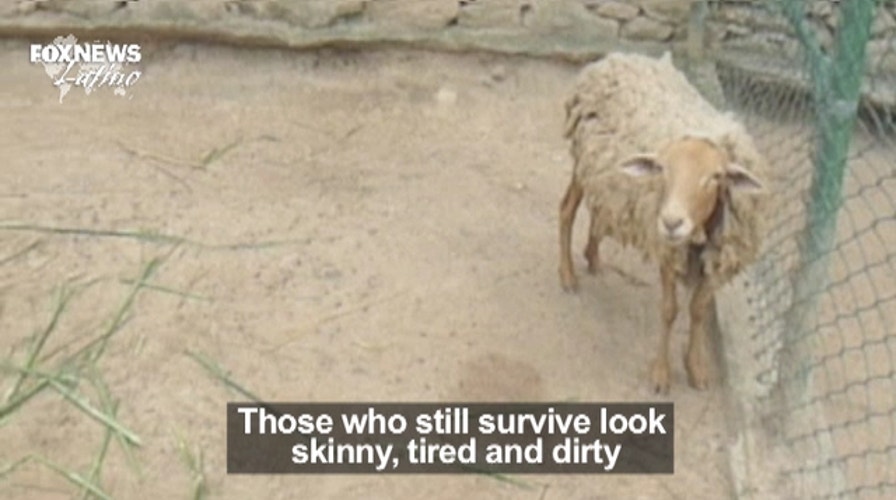Animals are dropping dead in Venezuela's zoos
Just this year, 50 animals have died in the Caricuao Zoo, the largest in Caracas.
Caracas, Venezuela – An emaciated lion whose skin hangs loosely because it hasn’t eaten in days. Elephants, bison and monkeys that have gone hungry because there is no food to feed them.
This is the dire situation at the zoos in Venezuela, where at least 50 animals have died in one zoo the past seven months because of problems related to malnutrition. The country is suffering from a massive food shortage that has left almost the entire country hungry – including its furry animals.
According to Marlene Sifontes, a member of the National Institute of Parks workers union, these are the worst days the Caricuao Zoo has seen in its nearly four decades of operation.
“Animals have gone 15 days without eating anything during some periods. We have registered the death of Vietnamese pigs, tapirs, rabbits, birds, peccaries and porcupines,” Sifontes told Fox News Latino.
One case two weeks ago astonished the community. A beloved dark horse that had been in exhibit for years was attacked in the middle of the night and quartered for meat. The next day staff members found just the head and the mutilated body.
“We imagine that people took it to eat it,” a zoo guide shrugged, when inquired by Fox News Latino.
A few visitors were strolling around the 630-acre zoo last week.
Anabel Conde, who was visiting with her family said she is appalled at the deterioration of the zoo’s facilities.
“We came in January and things have gotten worst,” she said. “We just saw some pigs fighting for the food people threw.”
Local officials said they are investigating the escalation of deaths, but the government says the reports are part of a campaign of "lies."
"The animals are very dear, treated as if they were family, in fact they all have names," said Ernesto Paiva, Minister for Ecosocialism and Water, according to Reuters.
But other authorities and experts say the level of starvation is alarming and goes beyond the capital’s zoo.
“The economic crisis hits everyone. The high inflation has forced zoos to use up what they had budgeted for food for the entire year,” Esmeralda Mujica, president of Venezuela’s Association of Zoos and Aquariums, said to FNL.
“On top of that, the scarcity makes it impossible to find concentrated food, vitamins, minerals,” she added.
Sifontes said that the Caricuao Zoo has run out of medicines and its veterinary hospital is working at less than 30 percent capacity. They don’t have enough medical staff or experts in nutrition due to the low salaries.
Under these circumstances, she explained, even a minor health complication can turn deadly.
“People just don’t pay much attention to this because [these circumstances] are the same all Venezuelans are going through,” Mujica told FNL.
The situation is especially evident in some of the animals at the Caricuao Zoo. Pigs and goats are emaciated, the sheep are dirty, the elephant’s skin is painfully dry.
The infrastructure is heavily damaged due to the lack of maintenance. Filthy water surrounds some areas. Many roads and railings are in total disrepair and most of the animals don’t have identification signs in their cages.
Sifontes said felines are the only ones eating normally because the Caricuao Zoo has an agreement with the city’s hippodrome to receive horse meat.
The animals that rely on fruit or grass are the most affected, she said, because the zoo grass’ is far from nutritious. They don’t have any hay either, which greatly impacts on species like the one bison here – a decrepit American bison that requires special care.
“The animals seem very weak. If they are not eating well, what can you expect?” said Ivette Gonzalez, another visitor.
As the economic crisis continues to relentlessly wreak havoc in Venezuelan society, it is not surprising that the zoos have also become a target for criminals.
“In some places the animal’s food is stolen in the middle of the night,” Mujica told FNL, referring to other zoos in the country.
"The security guards don’t even have flashlights to protect the animals at night. We don’t have resources," said Sifontes, the Caricuao Zoo employee.

